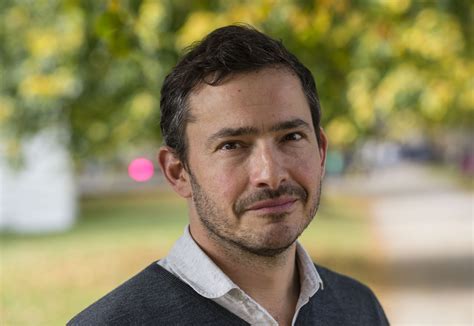A Quote by Susie Dent
One of the joys of language is its constant evolution, and a lexicographer's job is both to track new words and to reassess those from the past.
Related Quotes
Part of what makes a language 'alive' is its constant evolution. I would hate to think Britain would ever emulate France, where they actually have a learned faculty whose job it is to attempt to prevent the incursion of foreign words into the language. I love editing Harry with Arthur Levine, my American editor-the differences between 'British English' (of which there must be at least 200 versions) and 'American English' (ditto!) are a source of constant interest and amusement to me.
The divide of race has been America's constant curse. Each new wave of immigrants gives new targets to old prejudices. Prejudice and contempt, cloaked in the pretense of religious or political conviction, are no different. They have nearly destroyed us in the past. They plague us still. They fuel the fanaticism of terror. They torment the lives of millions in fractured nations around the world. These obsessions cripple both those who are hated and, of course, those who hate, robbing both of what they might become.
The bold and discerning writer who, recognizing the truth that language must grow by innovation if it grow at all, makes new words and uses the old in an unfamiliar sense has no following and is tartly reminded that 'it isn't in the dictionary' - although down to the time of the first lexicographer no author ever had used a word that was in the dictionary.
It is an error to imagine that evolution signifies a constant tendency to increased perfection. That process undoubtedly involves a constant remodeling of the organism in adaptation to new conditions; but it depends on the nature of those conditions whether the direction of the modifications effected shall be upward or downward.
Being a slow reader would normally be a deficiency; I found a way to make it an asset. I began to sound words and see all those qualities - in a way it made words more precious to me. Since so much of what happens in the world between human beings has to do with the inconsideration of language, with the imprecision of language, with language leaving our mouths unmediated, one thing which was sensuous and visceral led to, in the use of language, a moral gesture. It was about trying to use language to both exemplify and articulate what good is.
As a poet and writer, I deeply love and I deeply hate words. I love the infinite evidence and change and requirements and possibilities of language; every human use of words that is joyful, or honest or new, because experience is new... But as a Black poet and writer, I hate words that cancel my name and my history and the freedom of my future: I hate the words that condemn and refuse the language of my people in America.
One way to think about what psychedelics are is as catalysts for language development. They literally force the evolution of language. You cannot evolve faster than your language because the language defines the culture of meaning. So if there's a way to accelerate the evolution of language then this is real consciousness expansion and it's a permanent thing. The great legacies of the 60's are in attitudes and language. It boils down to doing your own thing, feeling the vibe, ego-trip, blowing your mind.


































